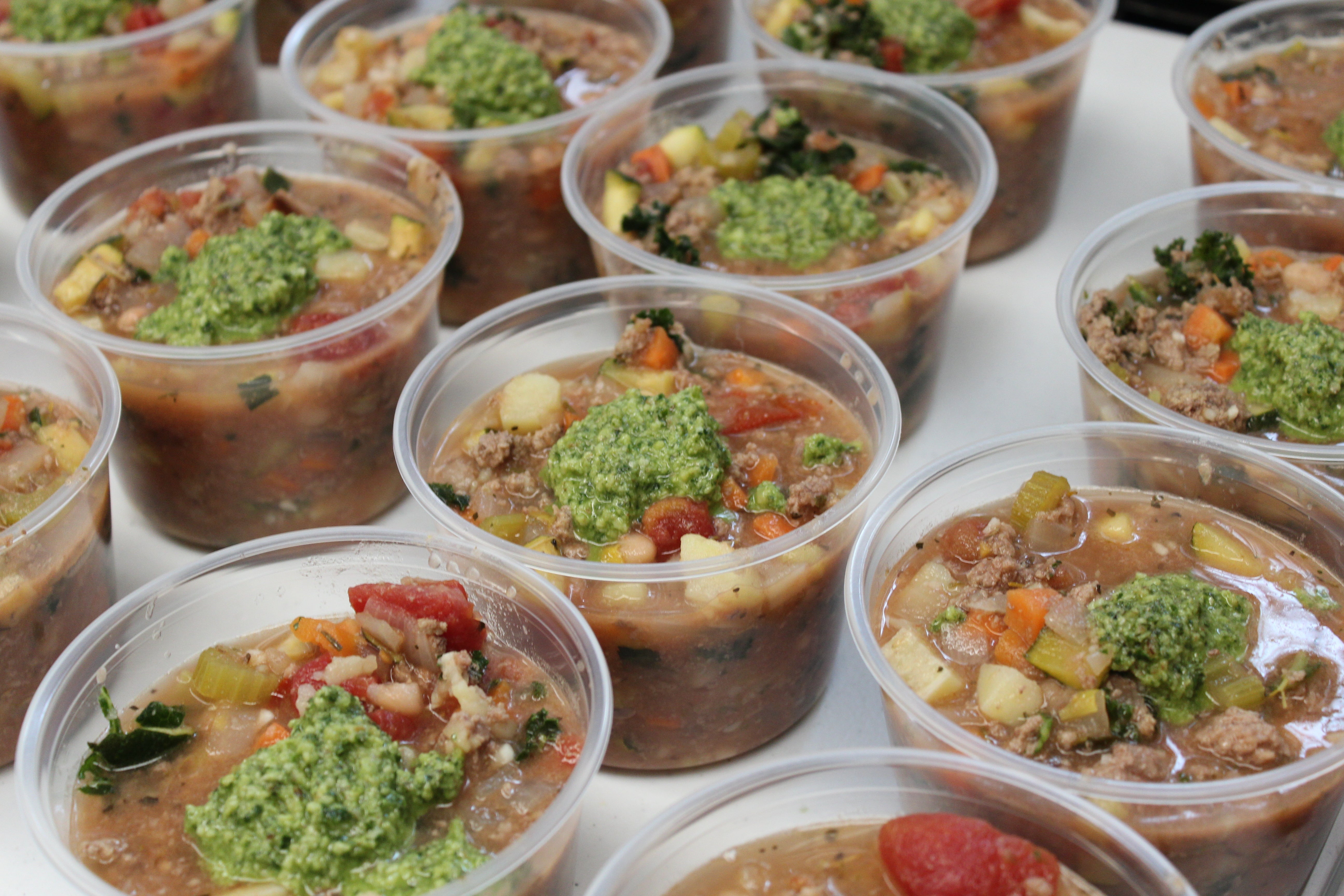
Eating for Immunity: Vitamin-Rich Foods to Protect Your Immune System
Eating for Immunity:
Vitamin-Rich Foods to Protect Your Immune System
Michaela Long, WSU Dietetic Student
As flu season approaches and school is back in session, it seems that everyone knows someone who’s getting sick! We all know the basics: hand-washing, good personal hygiene, stay home if you’re feeling ill, and getting your
flu shot can all help reduce your chances of getting yourself or someone else sick.
What’s less well known is the role certain vitamins and minerals have in our
immune systems, and which foods are rich in these immunity-supporting foods.
Vitamin C
Vitamin C helps support immune health as an antioxidant, protecting cells against the damaging effects of free radicals. Free radicals are formed as a sort of waste product whenever the body breaks down food, is exposed to radiation from the
sun, or is exposed to tobacco smoke. Free radicals may contribute to heart
disease, cancer, and other diseases, which is why we need antioxidants to help disable them! Vitamin C also helps increase the body’s absorption of iron,
one of the most common nutrient deficiencies among western countries.
The recommended intake for vitamin C is 90mg per day for men, and 75mg per day for women. However, vitamin C requirements are increased during pregnancy,
lactation, infection, smoking, extreme temperatures, and exercise.
Vitamin C-Rich Foods:
∙Oranges and orange juice
∙Strawberries
∙Broccoli
∙Brussels sprouts
∙Cauliflower
∙Green and red peppers
∙Spinach
∙Cabbage
∙Tomatoes and tomato juice
∙Rosehips (ex: rosehip tea)
Zinc
Zinc is involved in the body’s immune system and metabolic health by supporting healing processes and the breakdown of carbs for energy. Zinc is also important for wound healing and your sense of taste and smell. It’s a key component for the creation of DNA, cell growth, and building proteins, which makes adequate zinc intake crucial during times of rapid growth such as childhood and pregnancy. Because zinc supports the normal functioning of immune cells, even a mild deficiency can slow their activity, leaving the body less protected from viruses and
bacteria.
According to the Mayo Clinic, if zinc lozenges or syrup is taking within 24 hours after cold symptoms start, the supplement can help shorten the length of colds. Although zinc lozenges may have a few unpleasant side effects, like having metallic flavor and causing nausea, some people would gladly trade these symptoms for a shorter time with a nasty cold!
The recommended daily amount of zinc is 11mg for men and 8mg for women. It
should be noted that longterm zinc supplementation is not recommended as it can cause copper deficiency. Limit zinc doses to less than 40mg per day for no
longer than 14 days, or just get your daily dose of zinc from the list of foods
below:
Zinc-Rich Foods:
∙Seafood: oysters, crab, lobster
∙Beef
∙Poultry
∙Pork
∙Whole grains
∙Legumes/beans
∙Nuts
∙Seeds
Vitamin D
Vitamin D helps increase the body’s calcium absorption, supporting strong bones and healthy cell growth. Its' anti-inflammatory and antioxidant properties support immune health and muscle
function. Vitamin D also helps moderate blood pressure and may help
autoimmune disorders, such as multiple sclerosis, rheumatoid arthritis, and
Crohn’s disease.
Your body can make its own vitamin D when direct sunlight contacts skin, however any Washingtonian will tell you that sunlight isn’t easy to come by in the PNW!
Depending on where you live, vitamin D production might decrease or be completely absent during the winter months. Use of sunscreen can also decrease your vitamin D production (although it should still be worn for skin cancer prevention).
for people ages 1 to 70 years.
Vitamin D isn’t naturally found in many foods (see below), and vegan or vegetarian lifestyles can make it even harder to meet requirements through diet. For this reason, a vitamin D supplement may be the only vitamin from this list to consider adding to your daily routine.
Vitamin D-Rich Foods:
∙Beef
∙Fatty fish (ex: salmon, mackerel, sardines)
∙Egg yolk
∙Liver
∙Dairy products (ex: milk, cheese, butter)
∙Bread
∙Mushrooms
Resources:
1.Advanced Medical Nutrition Therapy by Kelly Kane and Kathrina Prelack
2.![]() https://www.mayoclinic.org/drugs-supplements-vitamin-c/art-
https://www.mayoclinic.org/drugs-supplements-vitamin-c/art-
20363932#:~:text=Vitamin%20C%20is%20an%20antioxidant,disease%2C%20cancer%20
and%20other%20diseases.
3.![]() https://www.mayoclinic.org/drugs-supplements-zinc/art-20366112
https://www.mayoclinic.org/drugs-supplements-zinc/art-20366112
4.https://www.hsph.harvard.edu/nutritionsource/zinc/#:~:text=Zinc%20is%20a%20trace%
20mineral,supporting%20a%20healthy%20immune%20system.
5.https://www.mayoclinic.org/drugs-supplements-vitamin-d/art-20363792